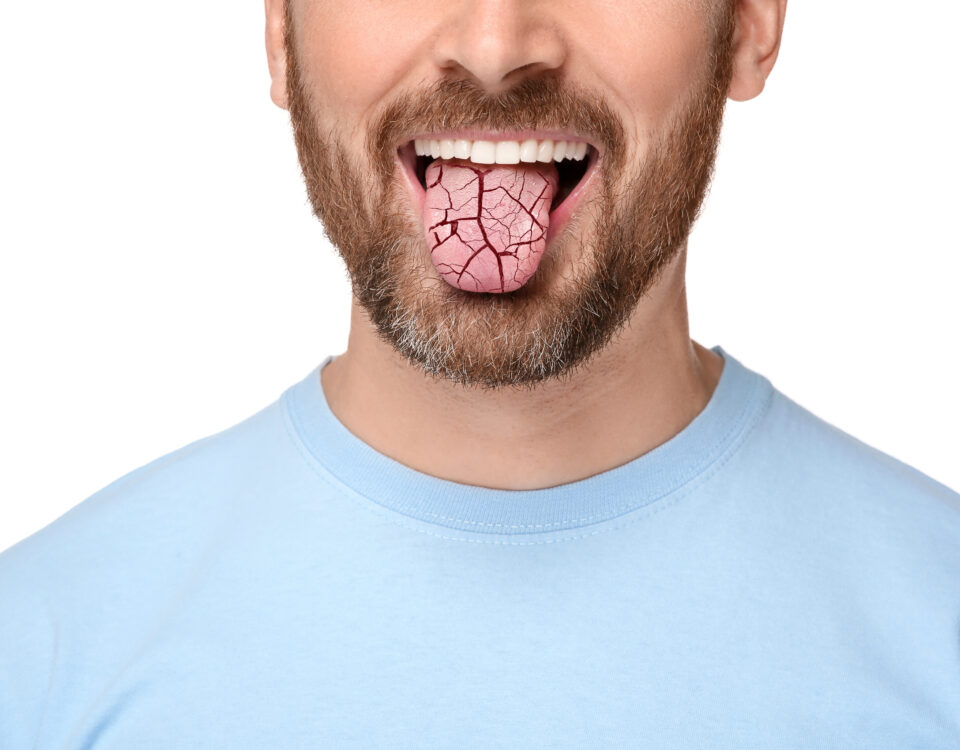Dry Mouth Tips for the Winter Months

How to Prevent Periodontitis
March 25, 2020
Dental Care: The Best Thing You Can Do For Your Smile in 2022
December 29, 2021Winter is a time for hot cocoa and cozy winter clothes. However, winter can also wreak havoc on your oral health. The cold winter air can contribute to dry mouth which makes it more difficult to keep teeth clean and healthy. A dry mouth means bacteria have a better chance of colonizing on the tooth’s surface and causing plaque buildup or cavities over time. In this blog post we will go over some tips that will help you maintain dental care during the winter months!
Dry Mouth in the Winter
Dry mouth in the winter is a common issue that many people face. The cold air during winter time makes it hard for saliva to dissolve sugars and other food particles from our mouths. This can lead to plaque buildup and cavities, as well as bad breath.
Symptoms
Along with the obvious signs of dry mouth, there are other symptoms. The American Dental Association explains that other common problems associated with mouth dryness include:
- A constant sore throat
- Burning sensation in the throat
- Trouble speaking
- Difficulty swallowing
- Hoarseness
- Dry nasal passages
Risks of Dry Mouth
There are a few risks that come along with dry mouth. Plaque buildup can cause cavities and gum disease, while bad breath can be a sign of other oral health problems. Dry mouth can also make it difficult to eat and speak correctly. In addition, Mayo Clinic explains, not seeking treatment for mouth dryness can lead to:
- Increased plaque, tooth decay and gum disease
- Mouth sores
- Yeast infection in your mouth (thrush)
- Sores or split skin at the corners of your mouth, or cracked lips
- Poor nutrition from having problems with chewing and swallowing
Other Causes
In addition to the cold winter air leading to dry mouth, the following list includes other common causes:
- Medications. Hundreds of medications, including many over-the-counter drugs, produce dry mouth as a side effect. Among the more likely types to cause problems are some of the drugs used to treat depression, high blood pressure and anxiety, as well as some antihistamines, decongestants, muscle relaxants and pain medications.
- Aging. Many older people experience dry mouth as they age. Contributing factors include the use of certain medications, changes in the body’s ability to process medication, inadequate nutrition, and having long-term health problems.
- Cancer therapy. Chemotherapy drugs can change the nature of saliva and the amount produced. This may be temporary, with normal salivary flow returning after treatment is completed. Radiation treatments to your head and neck can damage salivary glands, causing a marked decrease in saliva production. This may be temporary or permanent, depending on the radiation dose and area treated.
- Nerve damage. An injury or surgery that causes nerve damage to your head and neck area can result in mouth dryness.
- Other health conditions. Dry mouth can be due to certain health conditions, such as diabetes, stroke, yeast infection (thrush) in your mouth or Alzheimer’s disease, or due to autoimmune diseases, such as Sjogren’s syndrome or HIV/AIDS. Snoring and breathing with your mouth open also can contribute to dry mouth.
- Tobacco and alcohol use. Drinking alcohol and smoking or chewing tobacco can increase mouth dryness symptoms.
- Recreational drug use. Methamphetamine use can cause severe mouth dryness and damage to teeth, a condition also known as “meth mouth.” Marijuana also can cause dry mouth.
Tips for Maintaining Dental Care in Winter
Luckily, there are ways to maintain dental care during winter. Here are some tips:
- Drink plenty of water! This will help to keep your mouth hydrated and saliva flowing.
- Suck on sugar-free candy or chew sugar-free gum. This will stimulate saliva production.
- Avoid drinking alcohol and caffeine, as both of these can dry out the mouth.
- Rinse your mouth with a fluoride mouthwash such as ACT (AntiCavity Fluoride Toothpaste). You can also brush your teeth with this for dry mouth support!
- Keep up on regular dental visits and cleanings! Regular checkups and cleanings will keep dry mouth in check and ensure that you maintain healthy teeth and gums.
If you are experiencing dry mouth and any of its associated problems, be sure to talk to your dentist. They can provide further treatment and advice on how to best manage dry mouth symptoms.
Contact Premier Dentistry of Eagle This Winter
If you are suffering from dry mouth this winter, it is important to contact our dental professionals at Premier Dentistry of Eagle right away. We can help you maintain great oral health in dry winter seasons! Call today for an appointment: (208)-546-0655.


